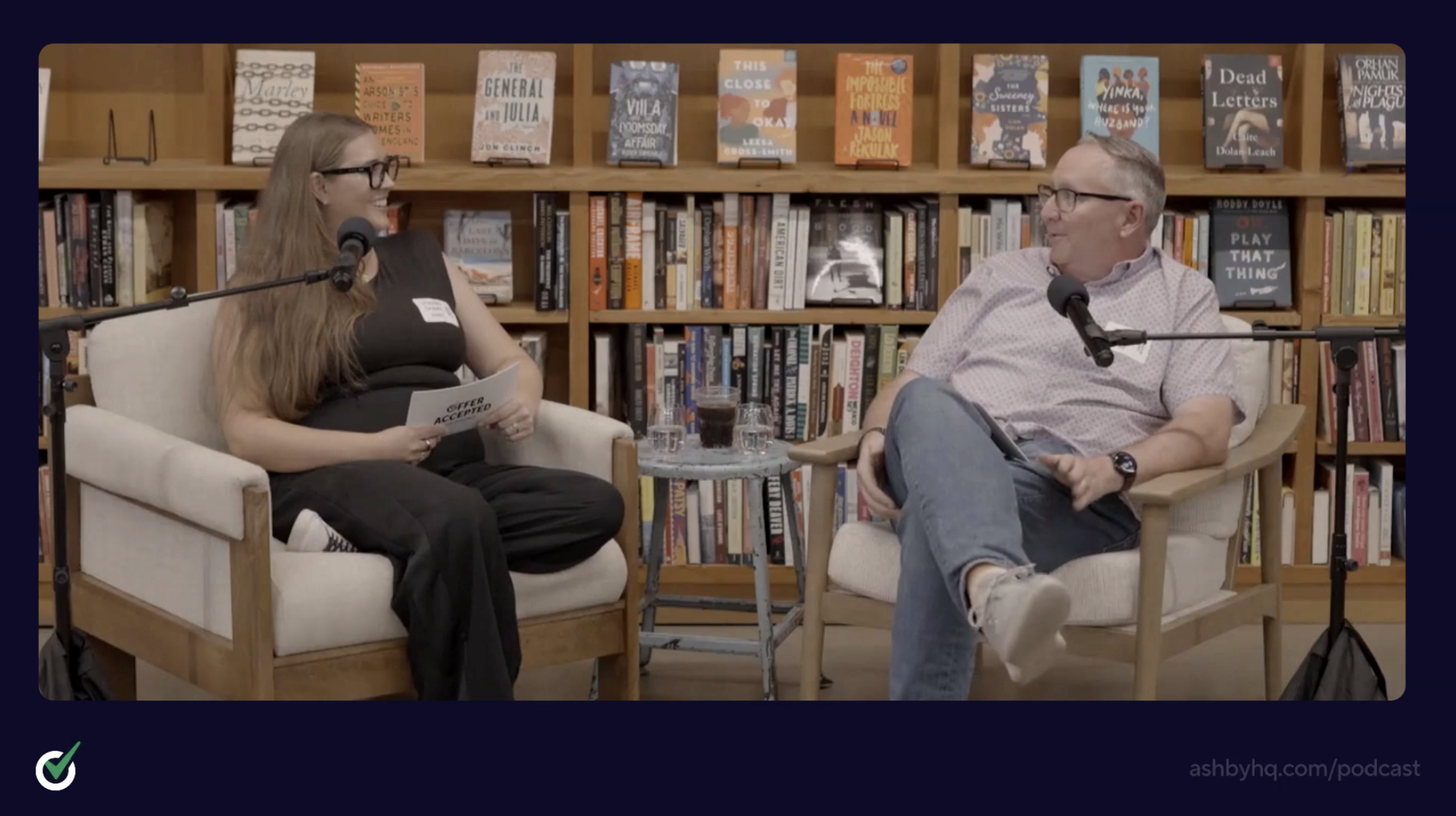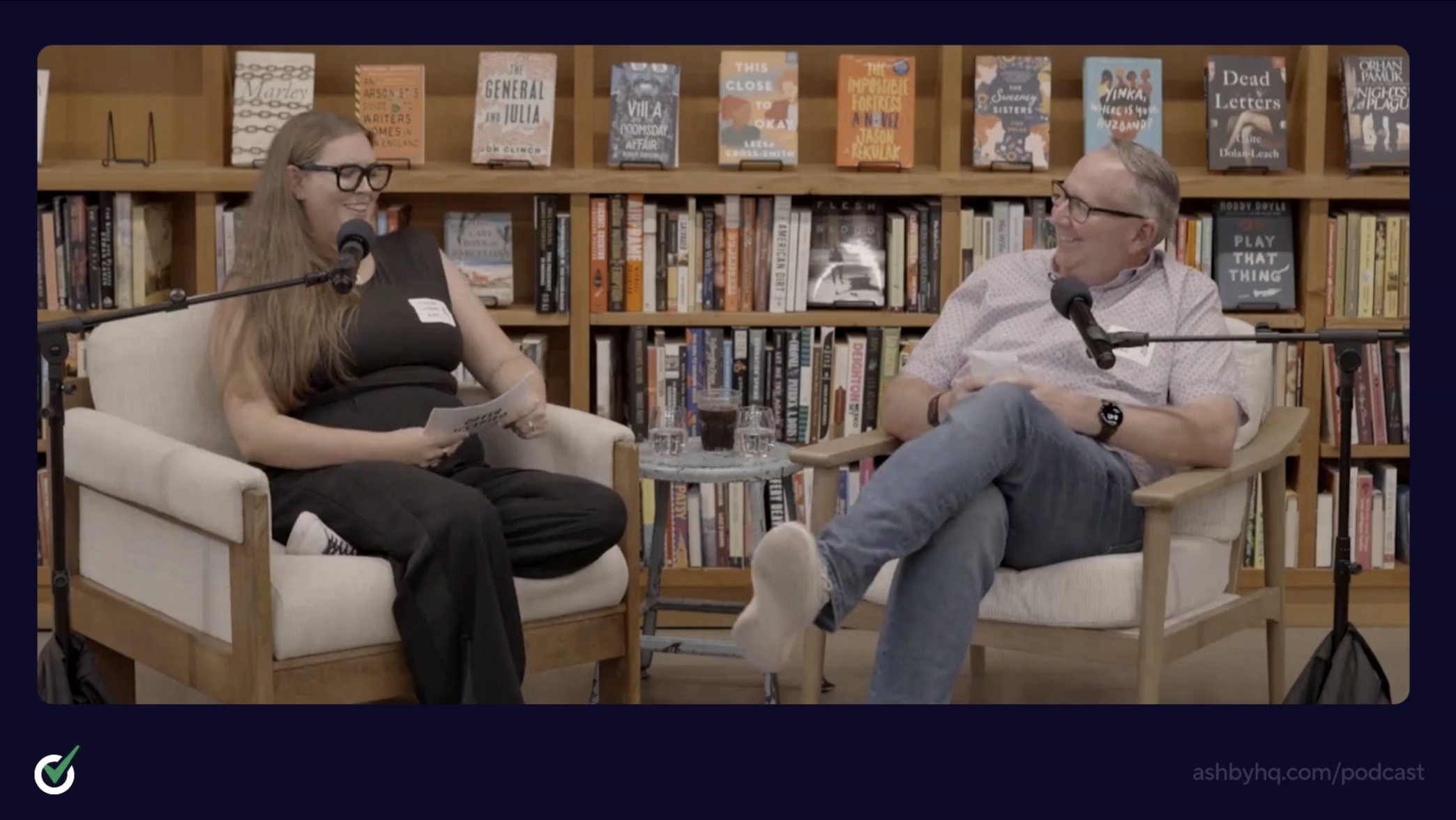Earning Trust Through Employer Storytelling
About this Episode
In this episode of Offer Accepted, Jeff Moore, VP of Talent Acquisition at Toast, reflects on how employer brand becomes most powerful when it is felt, not just seen. With nearly 25 years of recruiting experience at companies like Google, TripAdvisor, and MathWorks, Jeff has led teams through rapid growth and organizational change. At Toast, he has shaped an approach to hiring that blends storytelling, human connection, and community insight.
Jeff walks through the programs that bring this to life, from candidate experience sessions that introduce culture early in the process to localized recruiting strategies that help teams connect with talent in markets like Fargo and Sheboygan. He also shares how recruiters can act as trusted storytellers, translating a company’s values into every conversation.
Topics
This Episode's Guest
Jeff Moore
VP of Talent Acquisition, Operations and Workspaces @ Toast
Jeff Moore is the VP of Talent Acquisition at Toast, where he focuses on scaling recruiting teams and creating equitable, consistent hiring practices. With nearly 25 years of experience at companies like Google, TripAdvisor, and MathWorks, Jeff has led recruiting for major product areas and guided teams through growth and transformation. He is passionate about building processes that maximize talent potential while keeping humanity and connection at the center of every hire.
Takeaway 1
Employer Brand Must Be Experienced, Not Just Explained 👀
Jeff points out that most candidates know very little about a company’s story. Employer brand works when it gives them a way to feel and experience what a company stands for. For Toast, that connection comes naturally through its product. Candidates use Toast every time they pay in a restaurant, and the recruiting team builds on that familiarity.
Why It Matters:
Candidates rarely trust words alone. Seeing and experiencing culture, values, and impact first-hand creates a foundation of trust. For recruiting teams, this means employer brand is not a separate marketing function. It is part of every candidate interaction.
Quick Tips
- Tie brand to something visible. Use products, community work, or cultural touchpoints that candidates can directly experience.
- Back up the story internally. Ensure employees can point to daily practices that reflect the brand you promote.
- Give recruiters ownership. Employer brand is most powerful when recruiters can weave it into conversations that align with each candidate’s motivations.
Takeaway 2
Intentional candidate experiences drive connection 🤝
At Toast, every onsite candidate meets with a dedicated candidate experience specialist who gives them a personalized “tour” of the company. It is not about logistics or benefits. It is about helping candidates feel the culture, see the environment, and understand what life at Toast is really like. Jeff first experienced this when interviewing for his own role, and it stood out as one of the most memorable parts of joining the company.
Why It Matters:
These moments differentiate the hiring process. They do not require flashy production, but they leave candidates feeling seen and informed. Jeff describes it as turning an ordinary scheduling block into an authentic experience that sets Toast apart.
Quick Tips
- Create a signature moment. Jeff’s team turned a standard scheduling block into something memorable by giving candidates a dedicated session to learn about culture and values in a personal way.
- Keep it conversational. Encourage the person leading the session to share stories and invite questions. Candidates remember real interactions more than presentations.
- Offer it thoughtfully. Use this kind of experience where it has the most impact, such as final stages or key roles, rather than adding it to every interview.
Takeaway 3
Investing locally strengthens employer brand 🌍
Toast hires sales reps and customer-facing employees across the United States, from well-known markets like Miami to smaller cities like Fargo and Sheboygan. Jeff realized a centralized sourcing model could not meet these needs. Instead, recruiters are assigned by territory and expected to become students of their markets. They learn which feeder companies produce strong candidates, what community networks exist, and where local programs and sales clubs might provide talent.
Why It Matters:
Recruiting in smaller markets requires credibility. Candidates want to know you understand their community and value their experience. When recruiters invest in local relationships, they become trusted representatives of both the brand and the opportunity.
Quick Tips
- Give recruiters regional ownership. Assign recruiters to specific territories so they can develop deep knowledge of the local ecosystem.
- Encourage ongoing research. Have recruiters map feeder companies, schools, and professional networks within their assigned markets. Jeff shared that his team has even sourced account executives by targeting alumni of local sales clubs.
- Lean on local voices. Employees already based in those communities can advocate for the brand and build trust with prospective candidates more effectively than external campaigns.
What Hiring Excellence Means to Jeff
For Jeff, Hiring Excellence means finding great talent efficiently and with clarity. He believes recruiting should be simple, fast, and focused on what matters most: identifying the right people and bringing them into the organization without unnecessary complexity.
He also emphasizes that teams should enjoy the process. Recruiting is demanding work, but it can be energizing when the team keeps things simple, celebrates wins, and remembers to have fun along the way.

Jeff's Recruiting Hot Take 🔥
AI will never replace the human connection that makes people change jobs.
When he started in recruiting, the hardest skill was finding people. He would cold call through Rolodexes and piles of resumes because there was no LinkedIn. Today, finding people is easy, and sourcing has become a commodity.
The real challenge now is activating people. Recruiters must understand motivations, build relationships, and help candidates make one of the most stressful decisions of their lives. No chatbot or automated outreach will ever convince someone to leave their job. Trust is created through genuine conversations with recruiters who know their craft and connect candidates to meaningful opportunities.

Timestamps
(00:00) Introduction
(00:43) Meet Jeff Moore
(02:17) Why employer brand is your biggest lever
(03:37) Letting the product story do the heavy lifting
(05:13) How Toast turns interviews into mutual experiences
(07:18) Keeping your org flexible through shifting priorities
(09:43) The surge team experiment that worked, until it didn’t
(12:03) Helping recruiters adapt to different roles fast
(13:21) Why local hiring needs micro-pipelines
(15:33) How to actually source at the zip code level
(17:22) Why recruiters need deep market knowledge
(19:00) The interview insight that made Jeff join Toast
(20:37) Employer brand only works when it’s honest
(23:06) How brand also boosts employee pride
(25:36) What hiring excellence really means
(27:04) Recruiting hot take: AI won’t win talent, people will
(30:27) Advice to his earlier self: Love the grind
(32:28) Why “offer accepted” still hits different
Other Episodes
Candidate Experience as a Catalyst for Recruiting Success
In this episode of Offer Accepted, Shannon Ogborn sits down with Willem Wijnans, Ashby’s EMEA Sales Lead. Willem, a veteran in scaling companies and recruiting functions, shares his journey and insights into the world of talent acquisition, particularly around candidate experience.
How To Best Use (and Scale!) Recruiting Personnel and Tools
In this episode of Offer Accepted, host Shannon sits down with Marty Hauck, Founder of The People People Group. They start with the nitty-gritty of recruiting, discussing the importance of choosing the right tools and systems for your team. Marty emphasizes the need for autonomy and creativity in the process, advocating for a balance between individualized workflows and centralized tools.

Join the Hiring Excellence movement
New episodes every month - subscribe here so you never miss out.
